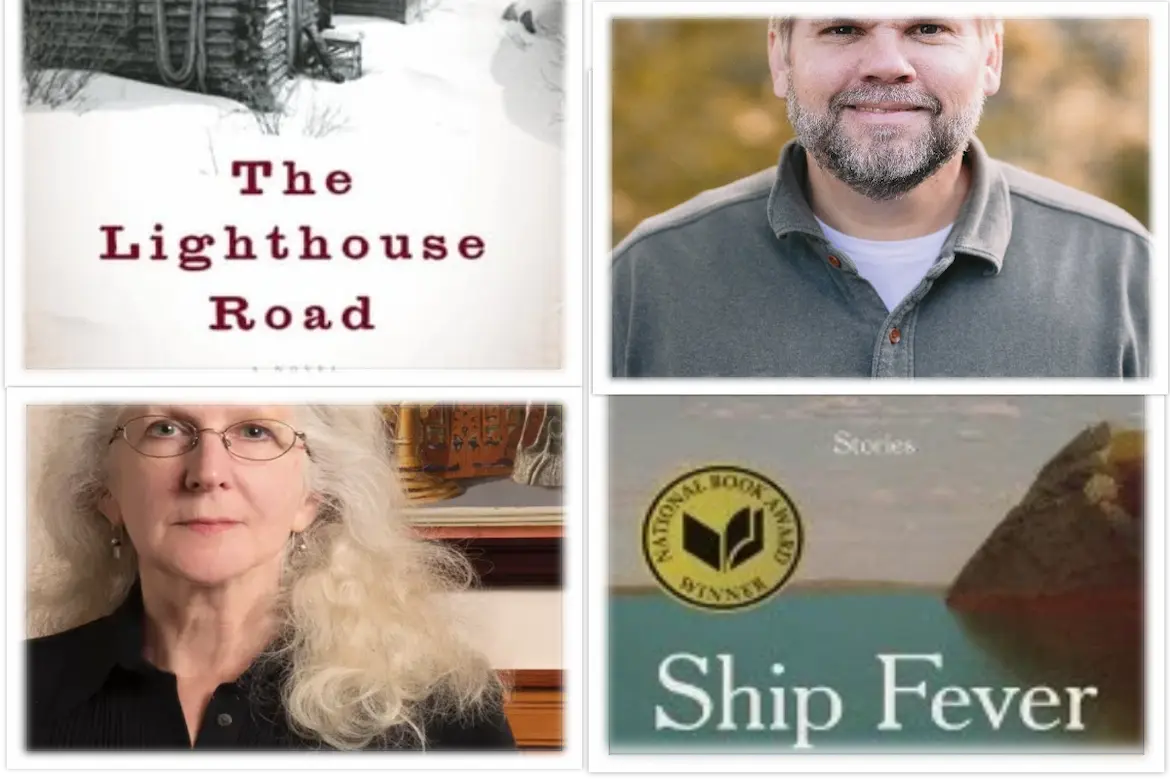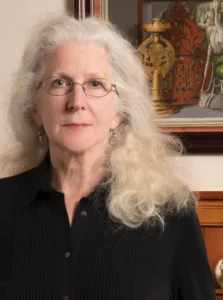
In this LitStack Rec of Ship Fever and The Lighthouse Road
Ship Fever: Stories, by Andrea Barrett
One of my favorite National Book Awards selections in fiction, Andrea Barrett’s story collection, Ship Fever, which won the award for fiction in 1996. The stories in this luminous collection run from historical to contemporary settings, yet there is an essential and unifying voice regardless of the era the author portrays. Like Jim Shepard and Robert Olen Butler, authors whose work also spans historical time, place and voice, Barrett’s essential prose style is crisp, clean and highly intimate in tone.
The settings are as varied as the eras: greenhouses, laboratories, an immigrant hospital in Quebec, a marine research station, all of which connect to the collection’s unifying subject: science, its practitioners, pioneers and scholars of the natural world.
The historical figures in Ship Fever include Gregor Mendel, whose nineteenth century experiments in the hybridization of peas forged the science of genetics. In Barrett’s hands, Mendel’s research (“The Behavior of the Hawkweeds”) becomes an elegant counterpoint to the experience of a contemporary narrator, the wife of a genetics professor who regularly lectures on the pioneer’s work. “The English Pupil” centers on the Swedish naturalist Carl Linnaeus, whose theory of classification formed the basis of the first naming system of plants, animals and minerals. Linnaeus, now aged and dying, his “once famous memory eroded by strokes,” travels one winter afternoon to his country house outside Uppsala, the once indefatigable cataloger hobbled by stroke:
His mind, which had once seemed to hold the whole world, had been occupied by a great dark lake that spread farther every day and around which he tiptoed gingerly. When he reached for facts they darted like minnows across the water and could only be captured by cunning and indirection.
Among the contemporary subjects in this collection, “The Littoral Zone” is one of the best. In present and past threads, it charts the lives of Jonathan and Ruby, who as young marine biologists meet on a research station off the New Hampshire Coast and begin an affair. Both married to other people, both with families, they return home, and in time divorce their spouses and marry. It’s a story of regret, told in hindsight decades later, a story about the stories we tell ourselves, about memory and desire and the torment of a choice that may not have been the right one:
They can’t remember, now, whether Gunnar’s endless lecture came before Carol Dagliesh’s filmstrip on the herring gulls, or which of the students tipped over the dissecting scope and sent the dish of copepods to their deaths. But both of them remember those days and nights as being almost purely happy. They swam in that odd, indefinite zone where they were more than friends, not yet lovers, still able to deny to themselves that they were headed where they were headed.
If Barrett’s feat of voice in these stories weren’t enough, she also subtly links the stories to one another. The effect is one of a detailed map, or a carefully considered equation. You can read Barrett’s acceptance speech here.
—Lauren Alwan
The Lighthouse Road by Peter Geye
Last week, a friend asked me if I had read The Lighthouse Road, a touching novel by Minneapolis native Peter Geye. I was happy to report that yes, I had, and that I enjoyed it immensely. It is one of those books I picked up from the library that I wish I owned.
Set in Gunflint, Minnesota (now a popular resort area on Lake Superior just south of the Canadian border) between 1895 and 1937, it follows the story of Norwegian immigrant Thea Eide, her young son Odd Einer Eide, and the woman who is the fragile thread that connects them to each other. The stark and majestic beauty of the north woods is prevalent in the book, but unlike so many of the stories set “up north”, the harshness of the landscape shapes the characters but does not direct the story itself.
It is the characters that drive this book; they are complex in the most straightforward of ways. You can relate their backgrounds in a single sentence, but that does not mean that they are flat or one dimensional; indeed, most of them are not dark or light, but made up of an infinitesimal gradation of grays that are ever in flux, shimmering even at their densest points. This is what makes The Lighthouse Road so compelling, this stark complexity – this, and the ever present surety of hope.
~ Sharon Browning
Other LitStack Resources
Be sure and check out other LitStack Recs of books we think you should read.


